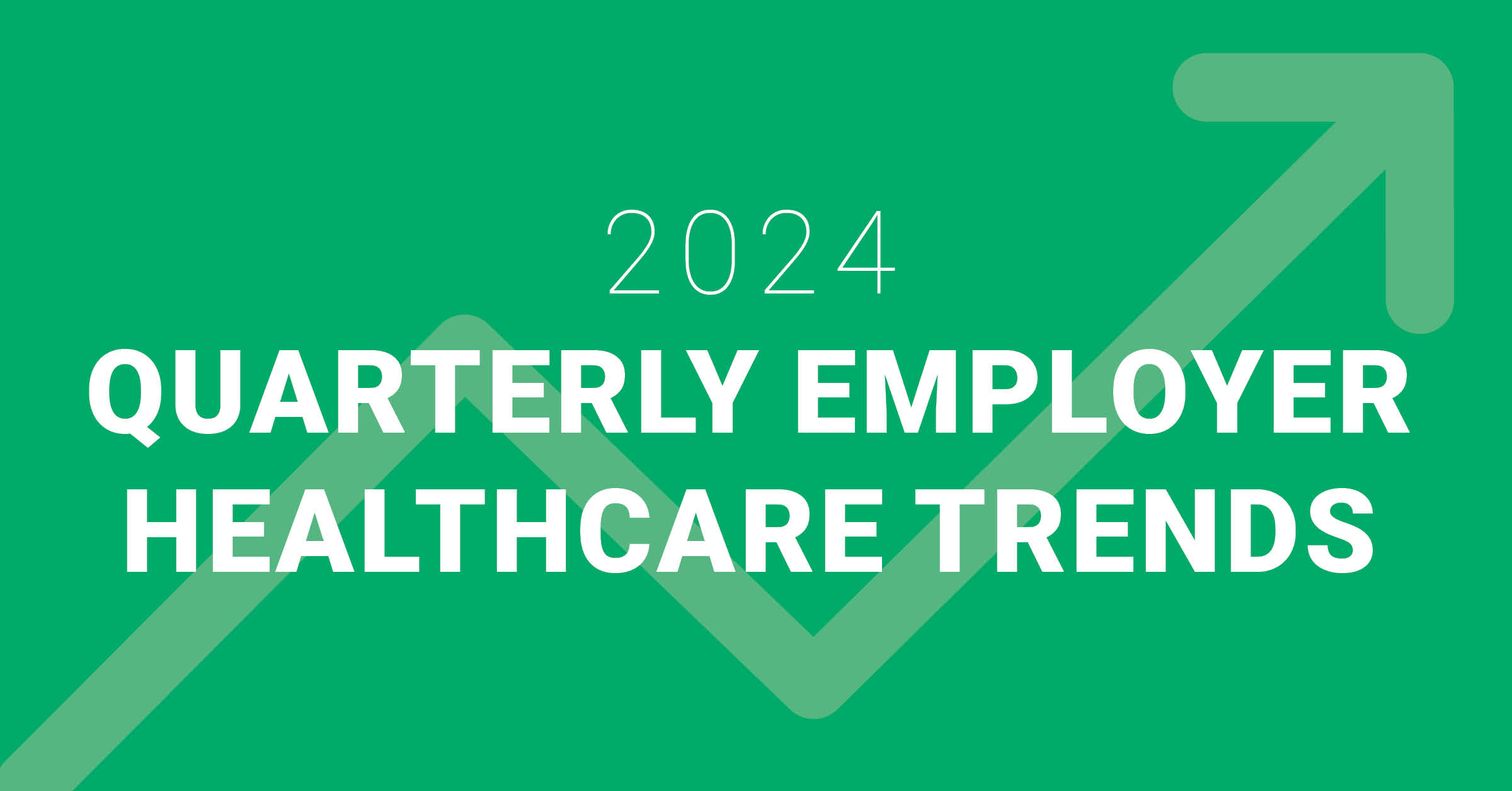Our healthcare system is broken, but investing in employee health can fix that. As a nation, we spend roughly $11,500 per person per year and the population as a whole is only getting sicker. To put that into perspective, that’d be like paying the monthly lease for a Porsche Cayenne but actually driving around in a beat-up used car. No one on the planet would accept that, but we’ve tolerated it for healthcare. It makes no sense.
How did we get here? Once you dig into the data, it’s really no surprise.
Today’s healthcare system rewards volume, not value. Transactions, not outcomes. It rewards doctors who simply order more tests, without considering cost implications or added value for the person receiving care. And until those incentives shift, we’ll fail to see any kind of meaningful change in quality or cost.
A 2021 Marathon Health survey found employers and employees not only believe healthcare is the most important benefit offered, both groups believe it’s the benefit that needs the most improvement.
Today, the healthcare system tends to reward more advanced, interventional specialized care, not patient-centered preventative health. If you look at the number of MRI scanners, orthopedic surgical centers and other types of complex care interventions, we’ve clearly over-invested in new technology and specialty care in the U.S.
Recent studies show the U.S. spends 34% of the national health expenditure on administrative costs, not better treatment services that help people lead healthier lives. Meanwhile, we meagerly spend only 5 to 7% on primary care, compared to 14% in other industrialized countries, according to a 2019 study from the Patient-Centered Primary Care Collaborative.
Traditional models put up too many barriers to primary care, from patients needing to wait for weeks or even months to see a provider, to searching for and failing to find convenient health center locations. Even when employees gain access to primary care, it’s not a value-oriented or patient-centered model. It’s transactional and reactive, not proactive. It’s not focused on building personal relationships or creating positive outcomes. There’s no accountability.
More recently, big tech and big retail entered the field, especially with telemedicine and virtual care offerings. But it’s still a mostly transactional model. Don’t get me wrong, virtual visits will certainly play an integral role moving forward, but nothing replaces the trusted, long-term human relationship between a patient and a dedicated primary care team.
As employers, we need to shift our investment in employee health to a laser-focused approach on primary and preventive care, in a way that helps patients get healthier, save money and discover better outcomes. When we reward these types of metrics, that’s when the tide will begin to shift in the healthcare industry.
Better Employee Health Starts With Better Care
At Marathon Health, we partner with employers of all sizes and industries — from large municipalities and school systems to call centers and labor unions — to provide data-driven, outcomes-based primary care, preventive screenings, and wellness services. We have 16 years of data proving a model that focuses on employee health and wellness works.
Employees gain exclusive access to onsite, Network or virtual health centers staffed by integrated care teams of physicians, nurse practitioners, behavioral health specialists, health coaches, and other providers. Average appointments last 32 minutes, three times the national average of 10 minutes, so our providers can spend quality time with each patient to really get to know them and provide high-quality care that drives outcomes.
Patients use it, and they love it. We demonstrate phenomenal experience outcomes, significant health outcomes and a lower cost of care. Employers who follow our best practices often see patient engagement with over 70% of their populations, and our net promoter score clocks in at a world class 87 — both of which demonstrate extraordinarily high satisfaction levels.
Most importantly, we drive tangible outcomes, especially when it comes to managing chronic conditions in terms of blood sugar control for diabetics, blood pressure control, depression screening and mental health services, and so forth. In 2020, the average Marathon Health client saved $11 million on employee health plan costs.
Outcomes-Based Care Models Impact Employee Health
How do we move to an outcomes-based primary care model? It’s two-fold.
First, we need to boost awareness with key decision-makers — often HR and benefits leaders — who can serve as change agents within their organization and help drive the push for an improved, value-based healthcare delivery model.
Launching a new healthcare benefit can sometimes feel like a risky undertaking for benefits leaders, yet, when organizations move forward with an outcomes-based primary care strategy, they almost never move back.
In fact, we retain 98% of our employer partners. It’s rare for an organization to take the plunge and shift their investment to a higher-value model, establish a direct relationship with a trusted primary care partner, and then shift back in a different direction. That’s because the results speak for themselves.
Secondly, we need to help decision-makers and stakeholders understand this is a safe choice to make, backed by 15 years of solid data, and countless studies showing patients who have a relationship with a primary care provider demonstrate better health outcomes, and significantly lower health plan costs.
Our client data shows how patients with a diagnosed chronic condition who engage with us cost their employers 31% less than similar patients who don’t engage with our care teams.
Additionally, our data shows patients who engage with our services cost 42% less in hospital admissions; 29% less in outpatient/ambulatory services and 20% less in ER usage.
Healthcare is broken. It’s grossly expensive, ineffective and wasteful. It’s time to shift the focus to create meaningful patient-provider relationships, proactively engage at-risk and high-risk patients with support and guidance, remove as many barriers as possible, and help reduce the burden of high healthcare costs.
It’s up to employers to lead this charge, and we’re here to guide you, and your employees, throughout every stage of the healthcare journey.
You might also like
Subscribe to our newsletter and stay on the cutting edge of worksite healthcare.










